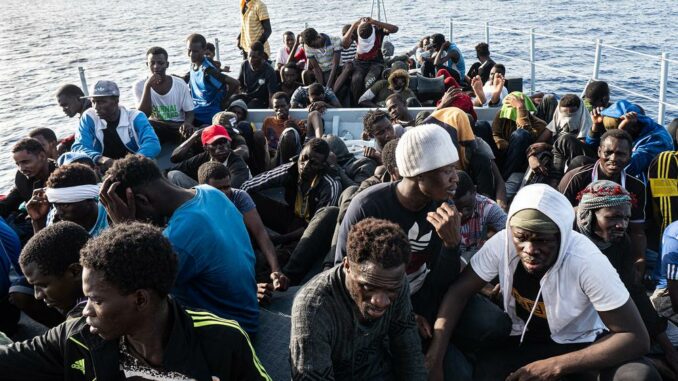
While last year, Senegalese authorities intercepted just one known boat headed for Europe, this year, the West African country’s navy has been stopping refugee boats at record rates, as it had recently intercepted four boats over three days with more than 600 people on board.
The would-be migrants, mostly Senegalese, but also Gambians and Malians, were reportedly attempting the treacherous crossing to Spain’s Canary Islands — gateway to Europe. Footage on social media has showed some of them jumping off a boat that had run aground in Senegal’s coastal city of St Louis. Witnesses say winds forced them back and they wanted to avoid arrest by the navy, which has recently stepped-up patrols. This comes as, in late July, the Senegalese government put forward a 10-year plan to combat irregular migration, including stronger border management. The UN’s International Organization for Migration (IOM) has reported that at least 140 migrants attempting the Atlantic crossing have died or gone missing since early 2023. In August alone, more than twice as many people as in the same month last year made it to the Canary Islands from Senegal and Morocco.
The surge in the numbers of would-be refugees who have been transferred from to local authorities since May shows how Senegal is stepping up to stem irregular migration flows. As the European Union agreed on a common migration pact on Wednesday (4 October), it remains unclear whether Senegalese authorities are getting funding from the EU, though the bloc has publicized moves to partner with the country.
Dakar has worked with the Spanish coastal guard to monitor transit routes since 2005 and is now in talks to partner with the Frontex. Some experts point out that Senegal’s increased action could serve as a model for other African countries, whose citizens now make up half of the top 10 origin countries for irregular refugee arrivals in Europe. Guinea, Cote d’Ivoire and Egypt top the list. But others argue that by itself, stopping migration doesn’t address the underlying root causes forcing people to move — most notably natural disasters, conflict, repressive governance, and limited economic opportunities.
